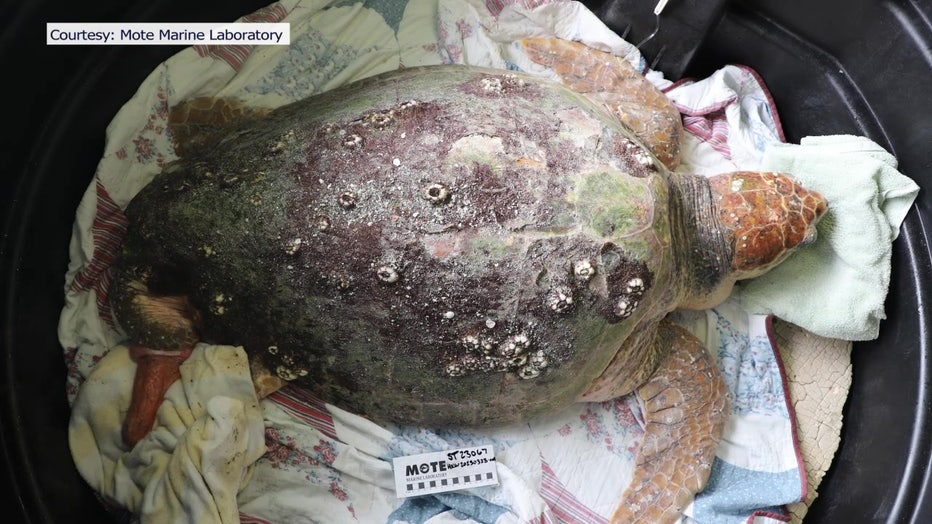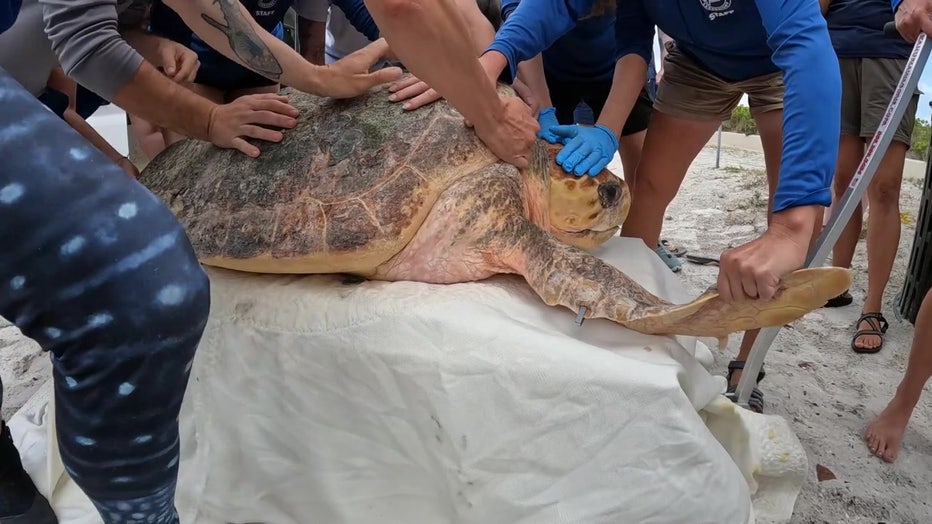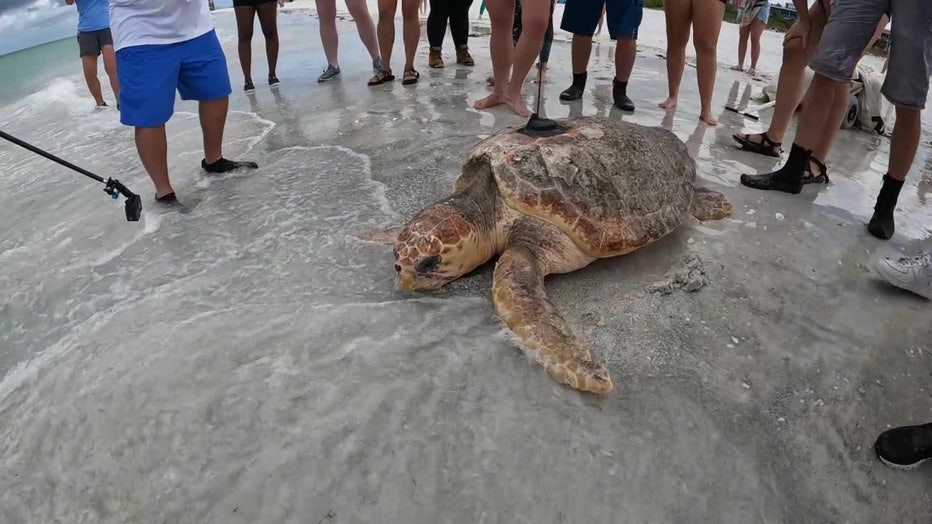Loggerhead sea turtle suffering from red tide rehabilitated by Mote Marine Laboratory
SARASOTA, Fla. - On Thursday morning, along the shoreline of Lido Beach a loggerhead sea turtle nicknamed ‘Steve’ returned home.
"It’s second chances. That’s what we are here to help with," said Lynne Byrd.
Steve washed ashore on Captiva at the height of red tide. He was affected by toxins from the bloom.
RELATED: Study called Magic Jet Ski could help reduce red tide along beaches, scientists say
"The turtles get the red tide from the food source they eat. That’s why we see it a lot more in our logger heads because they are eating the crab that was exposed to red tide. So when they eat that crab it stays in their digestive system, and then it slowly releases and causes these guys to get really neurological, and then they start shutting down," explained Byrd.

Steve, a loggerhead sea turtle, is getting a second chance thanks to Mote Marine Laboratory.
Lynn Byrd is the Rehabilitation and Medical Care Manager at Mote Marine Laboratory.
"A lot of times the turtles comes in. They can’t blink, they can’t raise their head. You don’t even know they’re alive unless you put an ultrasound on them to look at their heart," she shared.
Mote Marine Laboratory worked to nurse Steve back to health.
"Until you get that food source out of them and flush that toxin out of them which takes 72 hours to a week, those animals would just perish," said Byrd.
Over the past three weeks, Mote Marine has released five Loggerhead Turtles. All were once sickened by red tide.

Steve washed ashore during the height of red tide.
A crowd gathered as Steve was wheeled out to the shoreline.
"That’s awesome they were able to bring it back to health, and go out and live the rest of its life and hopefully live a good life," said Greg Estepp from Indiana.
Two additional Loggerhead Sea Turtles continue to recover from red tide exposure.
Hazelnut and Palmer will eventually be released.
READ: Smuggled parrot eggs survive harrowing journey from Central America: 'Hand-raised babies'
"They showed neurotoxicity signs related to red tide exposure. They both were also very underweight," said Jenna Rouse a Certified Veterinary Technical and Senior Animal Rehab Technician at Mote Marine Laboratory.

Steve is being tracked The Anna Maria Island Turtle Watch.
The work done at Mote is vital in protecting the species.
"It’s great to watch them transition to very sick, barely moving to taking off and swimming back out in the ocean," explained Rouse.
A satellite tag was placed on Steve by The Anna Maria Island Turtle Watch.
Males do not return to the shore once they hatch.
Mote Marine said because of that, there is very little information documented on male Loggerhead Sea Turtles.
The satellite tag will help researchers learn more about the male sea turtles.
To follow "Steve" click here.

